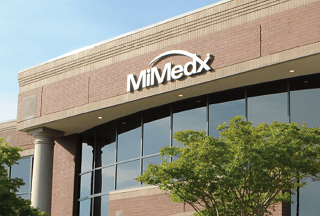Humana Medicare Advantage members in Kansas, Missouri, Arkansas and Oklahoma have more access to a health care model known as value-based care through a new relationship between population health leader Caravan Health and health and well-being leader Humana Inc. (NYSE: HUM). The arrangement is designed to offer Humana Medicare members a proactive and wellness-focused health care experience and financially reward doctors for high quality care.
The value-based agreement unites Caravan Health and Humana around the common goal of improving the health of the Humana Medicare members served in Caravan Health’s accountable care organization member practices. Humana Medicare Advantage members will have access to more than 300 Caravan Health primary care providers in the four states.
In 2015, on average, Humana Medicare Advantage members served by providers under value-based care experienced six percent fewer emergency room visits, higher screening rates, including those for colorectal cancer (+eight percent) and breast cancer (+six percent), and healthier outcomes versus members who were treated by providers in standard Medicare Advantage settings.
“The landscape of health care across the nation will continue to change,” said Lynn Barr, MPH, and Chief Executive Officer of Caravan Health. “Caravan Health provides the specific programs physicians need now, to move a medical practice from the rapidly fading models of servicing sickness and charging for volume, to the new reality of managing wellness and delivering value.
“For health care providers ready to make the transformation to value-based payments under the Accountable Care Organization (ACO) model, Caravan Health is a recognized leader in providing simple, affordable solutions that work,” said Barr. “Our programs set industry standards delivering better patient care, lower healthcare costs and a more secure financial future.”
Value-based care represents a significant shift from the historic model of health care known as fee-for-service which focuses mainly on the costly treatment of sickness instead of disease prevention and keeping people in good health. In the fee-for-service model, physicians are paid and incentivized primarily based on volume (number of services they perform), not improved health outcomes for the patient. By contrast, transitioning to value-based payment models will help ensure that physicians are reimbursed for the health outcomes of the patients they serve, not the number of services they provide. By focusing on quality and health, Humana experienced 20 percent lower costs in total in 2015 for members who were treated by providers in a value-based reimbursement model setting versus an estimation of original fee-for-service Medicare costs using Limited Data Set Files from the Centers for Medicare and Medicaid Services (CMS).
“Humana’s new agreement with Caravan Health bolsters the future of health care in Kansas, Missouri, Arkansas and Oklahoma,” said Kathleen Faulk, President of Senior Products for Humana’s Central Region. “Caravan Health care teams are focused on coordinating care around each patient’s unique health needs. Patients will benefit from wellness programs, as well as screening and monitoring for chronic conditions such as diabetes and heart disease.”
For doctors thinking about entering into a value-based care agreement, many cite not having adequate resources and support as key barriers to adopting this new model. By working with Humana and Caravan Health, providers have access to a number of different services to help support their transition to value-based care.
As part of the agreement, Caravan Health and Humana will develop strategies to improve the health of Humana’s Medicare Advantage members, lower costs, and manage the ongoing health needs of the population. Participating practices will utilize Caravan Health and Humana population health management tools to help identify gaps in care, manage medication adherence, follow up on patients needing primary care visits, and identify high emergency room utilizers and at-risk patients to help them receive the right care before requiring serious medical attention.
As of Dec. 31, 2016, Humana has 1.8 million individual Medicare Advantage members and 200,000 commercial members who are cared for by 50,400 primary care providers, in more than 900 value-based relationships across 43 states and Puerto Rico.
As of Dec. 31, 2016, approximately 64 percent of Humana individual Medicare Advantage members are in value-based payment relationships. Humana’s goal is to have 66 percent of individual Medicare Advantage members in value-based payment models by the end of 2017.



